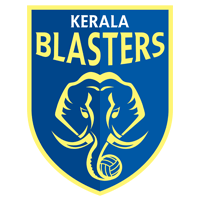
Group A: Stanislav Cherchesov (Russia)
Cherchesov is a former Russia goalkeeper whose last job was at Legia Warsaw. He has brought in discipline to the team but will miss some of his stars (Aleksandr Kokorin) due to injury. Only two players - Denis Cheryshev (Villarreal) and goalkeeper Vladimir Gabulov (Club Brugge) - ply their trade for clubs outside Russia in the squad.
Russia under Cherchesov fared poorly at the 2017 Confederations Cup, losing to Portugal and Mexico and crashing out at the group stages. In Group A, Russia will hope to pull off at least a win, against Saudi Arabia, in the opener.

Hector Cuper (Egypt)
We've all seen what a deadly attacker Mohamed Salah is for Liverpool, but for country, he has to play in a defensive setup under Hector Cuper, an Argentinian who has guided Valencia to two Champions League finals. With Mohamed Elneny and Tarek Hamed acting as the defensive midfielders, Egypt will let the opponents come at them before making a move.
Cuper's defence is still a worry. Goalkeeper Essam Al-Hadary is the oldest player at the FIFA World Cup at 45 years and Cuper centre-backs are weak in guarding against crosses. 13 of the 18 goal Egypt conceded during the FIFA World Cup qualifying came from crosses.

Oscar Tabarez (Uruguay)
Tabarez has been with the national team for the last 12 years, taking over from caretaker Gustavo Ferrin after they had failed to qualify for the 2006 World Cup. Tabarez, brought on for a second stint after his 1990 outing with the national team, revived the side and guided them to a fourth-place finish at the 2010 World Cup. Uruguay succumbed to Colombia in the Round of 16 shortly after Luis Suarez was handed a nine-game ban for biting Italy's Giorgio Chiellini during a group game.
Even this time, a lot hinges on Suarez but Tabarez has reined in the Barcelona striker and has brought in a never-say-die attitude into the entire team.
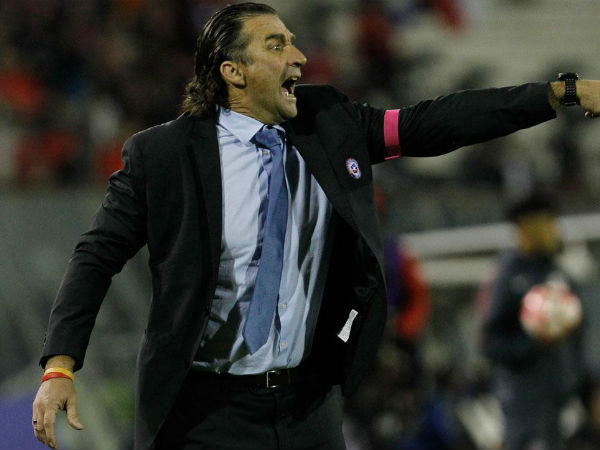
Juan Antonio Pizzi (Saudi Arabia)
Argentina-born Spaniard Pizzi has won the Copa America with Chile and has turned Saudi Arabia into a solid team that is ready to push forward and attack instead of sitting back and hitting on the counter like his predecessor Bert van Marwijk. However, that also makes them vulnerable against top quality strikers like Luis Suarez (Uruguay) and Mohamed Salah (Egypt) in this group. Saudi Arabia also lack the exposure to top attacking teams and this will make their progression from Group A almost impossible. Also, Pizzi has been in charge only since November 2017 and that's hardly ideal time to prepare a squad that can put up a challenge at the World Cup.

Group B: Julen Lopetegui (Spain)
Lopetegui did not enjoy much success at Porto, sacked from the Portuguese club before he took over from Vicente del Bosque at Spain. However, given the squad at his disposal, he need not worry about losing games. Lopetegui has retained the same passing style of play Spain is known for. However, he's also wary of the threat of the long balls and has his solution for that in Sergio Ramos and Gerard Pique. The Spanish strikers, however, need to adjust to this passing game and click for La Roja.
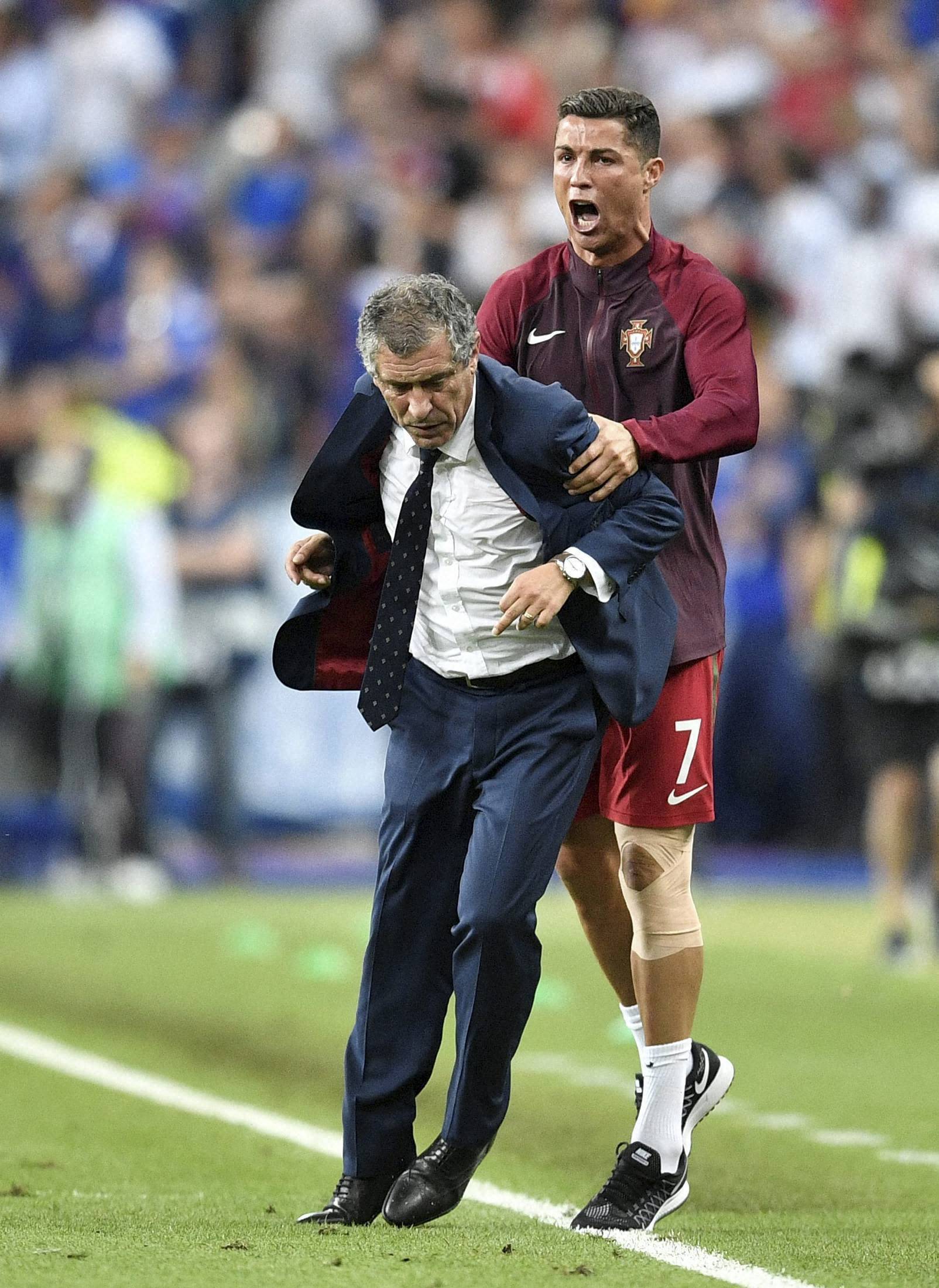
Fernando Santos (Portugal)
Without winning a single game in the group stages, Santos used the format of the Euro 2016 well to emerge winners. At the World Cup final stages though, Portugal cannot afford to draw their matches. Santos' side tirelessly prod at the opponents from the flanks and will hope that their forwards Cristiano Ronaldo and Andre Silva convert those in the tricky group.

Carlos Queiroz (Iran)
Queiroz, a former Real Madrid manager, was at the touchlines when Iran participated in the 2014 World Cup too. Four years on, Iran lead Asia's hope at the World Cup. Players like Sardar Azmoun (Rubin Kazan) and Alireza Jahanbakhsh (AZ Alkmaar) have matured with their European experience with Jahanbakhsh emerging the topscorer at the Erdivisie (21). This has only allowed Queiroz to bring in the attacking mindset into the Iran squad, a change from the counter-attacking side we saw four years ago.
|
Herve Renard (Morocco)
The former Cambridge United manager, a Moroccan, has ended his country's 20-year absence at the world stage. He has won the African Cup of Nations twice and with two different countries (Zambia 2012, Ivory Coast 2015).
Since taking over in 2016, Renard has brought the fighting spirit into Morocco. He has transformed the defence into an airtight unit and has given the freedom that his playmaker, Hakim Ziyech (Ajax Amsterdam) needs to create chances.
Now, Renard is taking Morocco to the World Cup for the first time since 1998. His team was airtight defensively in qualifying and they work extremely hard for one another. That, along with Renard's track record in knockout competitions, should have Spain and Portugal ever so slightly worried.
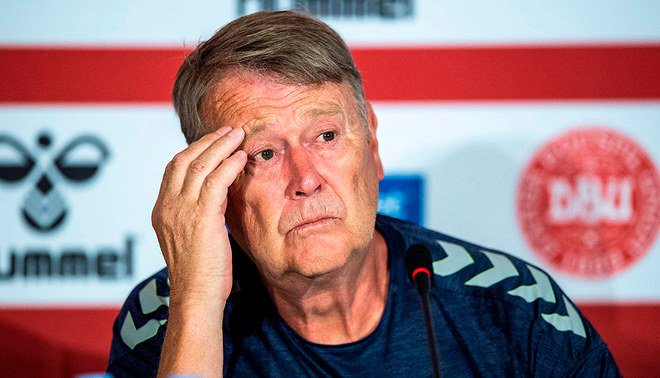
Group C: Age Hareide (Denmark)
The Norweigian coach has won domestic titles in Denmark, Norway and Sweden, thereby establishing himself as a reliable coach in Scandinavia. He likes to attack the opponents and create a lot of chances rather than sit back and defend. By attack, they are aggressive and go with a direct approach, making use of their chief playmaker Christian Eriksen (Tottenham Hotspur).

Bert van Marwijk (Australia)
The former Saudi Arabia coach took over after Ange Postecoglou quit after the Socceroos qualified for the FIFA World Cup. He hasn't had much time to familiarise himself with the squad but will like his men to play without fear against bigger opponents like France in the group. Under Van Marwijk, Netherlands reached the final of the 2010 World Cup. You could probably see the Australians play a bit of that attack-minded football in Russia.

Didier Deschamps (France)
Deschamps has won the World Cup with France in 1998, their only win, and hopes his side can repeat the success 20 years on. France have an abundance of talent. So much so that players like Alexandre Lacazette, Anthony Martial and Kingsley Coman were left out of the final squad by the brave manager. He has given individual stars like Paul Pogba and Kylian Mbappe the freedom they need and has backed them despite criticism, showing the trust in his players. However, Les Bleus lack consistency and can choke at the big stage, as shown by the Euro 2016 loss to Portugal at home.
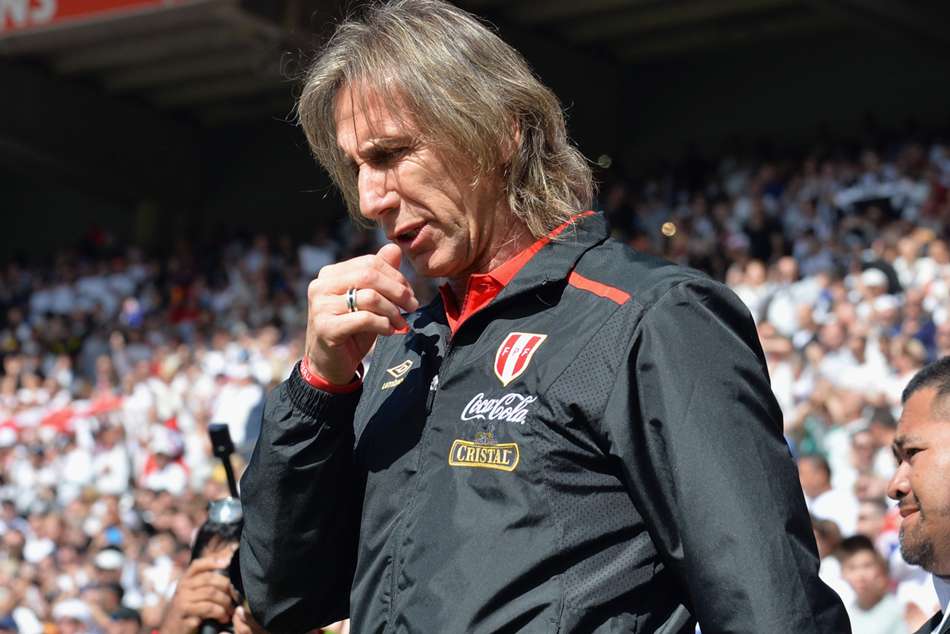
Ricardo Gareca (Peru)
Passion rules in Peru. That's how they qualified for the World Cup after a span of 36 years. Under Gareca, the South American nation are committed to playing in a disciplined manner and given captain Paolo Guerrero's doping repreive, they start in Russia with a lot of positive energy. Gareca likes his side to enjoy a lot of the ball possession but his team lacks the creativity to go all the way.

Bert van Marwijk (Australia)

Group D: Jorge Sampaoli (Argentina)
The Argentine has a bigger job of figuring out Lionel Messi than the rest of Argentina. Back in 2014, when Sampaoli was the Chile coach, we saw them play a fearless, attack-minded football. They even beat Argentina in the 2015 Copa America final. Argentina too are expected to play that way in Russia but that leaves them reeling at the back. Sampaoli has hinted that he would like his players to press high but the central defenders will stay low as they are not quick enough. He admits it's a new kind of formation that will be a variation of 2-3-3-2. Let's see if that works out.
|
Zlatko Dalic (Croatia)
The Bosnian has experience in Al-Ain (UAE) and Al-Hilal in Saudi Arabia. He was also an assistant coach for Croatia U-21 side from 2006-11. With the senior team, the coach has asked his star player Luka Modric to occupy the No 10 role, letting Ivan Rakitic perform the duties of controlling the rhythm of the attack. The role is definitely new for Modric, but you would rather have your best player trying to score goals instead of sometimes controlling the play from the back-line. It remains to be seen whether this will help Croatia get somewhere in the World Cup.
|
Heimir Hallgrimsson (Iceland)
Iceland are the smallest nation to qualify for the World Cup and that's thanks to Hallgrimsson, a dentist who quit his practice back home. He has experience in coaching the women's team as well and was the co-coach of Lars Lagerback when Iceland reached the quarterfinals of the Euro 2016. Hallgrimsson has given each of his players a specific role on the pitch and if any piece of the puzzle goes missing - like the fitness concerns of Gylfi Sigurdsson - all his plans will go haywire. Hallgrimsson, since taking charge of the national football team in 2011, has maintained the same set of players and strategies.

Gernot Rohr (Nigeria)
Rohr spent most of his time with Bordeaux - playing and coaching. He shifted to manage sides in Africa in 2010 and has been the Nigeria coach since 2016. The German is all praise for the way Nigeria like to play creative football, but he has brought in much-needed discipline into the Super Eagles side. He even banned his players from consuming goat meat and pepper soup during the World Cup.
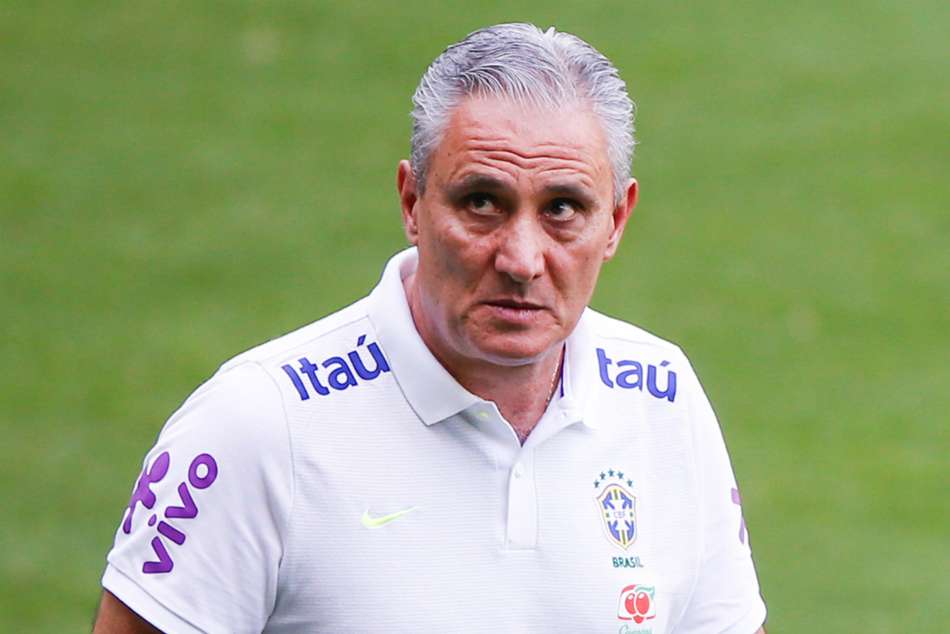
Group E: Tite (Brazil)
The former Brazil international has converted these set of gentlemen - gutted after losing 1-7 to Germany in 2014 - to upbeat favourites in four years. He allows his players to express themselves on the field, bringing back the flair of Joga Bonito that Brazil is known for. With a bunch of creative midfielders like Philippe Coutinho and Paulinho and a hard-working Casemiro, you could say Tite's Brazil are not overly dependent on Neymar like they were in 2014.
|
Oscar Ramirez (Costa Rica)
The coach hails from Costa Rica and likes to continue the same brand of football they played during the 2014 World Cup - maintain a defensive structure and hit on the counter. However, this has its limitations as Costa Rica may not be willing to press the pedal despite trailing in the game.
|
Vladimir Petkovic (Switzerland)
Bosnian coach Petkovic is a former manager of Lazio and he guided them to the Coppa Italia in his first season in-charge. He joined Switzerland after Ottmar Hitzfeld left following the 2014 World Cup. A taskmaster, Petkovic's boys are put in a boot camp-like structure. No cell phones are allowed during team meetings and the entire set of players have to sit together for each meal so that their team spirit improves.
In the Euro 2016, the Swiss did not impress much but over the years Petkovic's tactics have worked and the Swiss could challenge for a knockout spot this time around.
|
Mladen Krstajic (Serbia)
Krstajic is one of the newer coaches, having taken over at the helm in October 2017. A former Serbia international who played in the 2006 World Cup, Krstajic will want to bring in his defensive mindset into the national team. Given they have Branislav Ivanovic and Aleksandr Kolarov in their ranks, Krstajic's burden has been lessened slightly. However, the former Werder Bremen and Schalke 04 centre-back was reportedly not the first choice to take over the national team and he would like to prove his critics wrong.

Group F: Joachim Loew (Germany)
Loew has been in charge of Germany for the last 12 years and they have grown stronger with each major competition. Loew has experience in Russia, having won the 2017 Confederations Cup with most of his regulars rested. A sophisticated coach, Loew works his team methodically. The national team clicks well as a unit because of Loew's approach - he also works on making his players mentally tough to handle immense pressure.
|
Juan Carlos Osorio (Mexico)
The Colombian served as assistant coach to Sir Alex Ferguson at Manchester United. He likes Mexico to play the Manchester way - approach and attack. He has a tendency to rotate his squad a bit too much. However, Osorio has maintained a great team ethic and goes into his matches with full of plans. And he does not like it when they don't go his way.
|
Janne Andersson (Sweden)
The Swedes are emerging out of the shadow of their most famous star Zlatan Ibrahimovic and Andersson has also rejected Ibra's offer when he had said he could come out of retirement one last time for the national team. The reason - Andersson wants Sweden to play as a unit and not rely on individual stars. That's how they were able to pip Netherlands and Italy and qualify for the World Cup in the first place. In a team of individuals, Emil Forsberg of RB Leipzig still stands out.

Shin Tae-yong (South Korea)
Korea are among the four AFC sides to have a different coach right before the World Cup and they appointed Shin after the sacking of Uli Stielike. Shin has represented Korea in the 1992 Olympics and did not enjoy a good relationship with his predecessor Stielike. However, the entire squad is behind him and he carries positive vibes to the World Cup despite a tough draw.
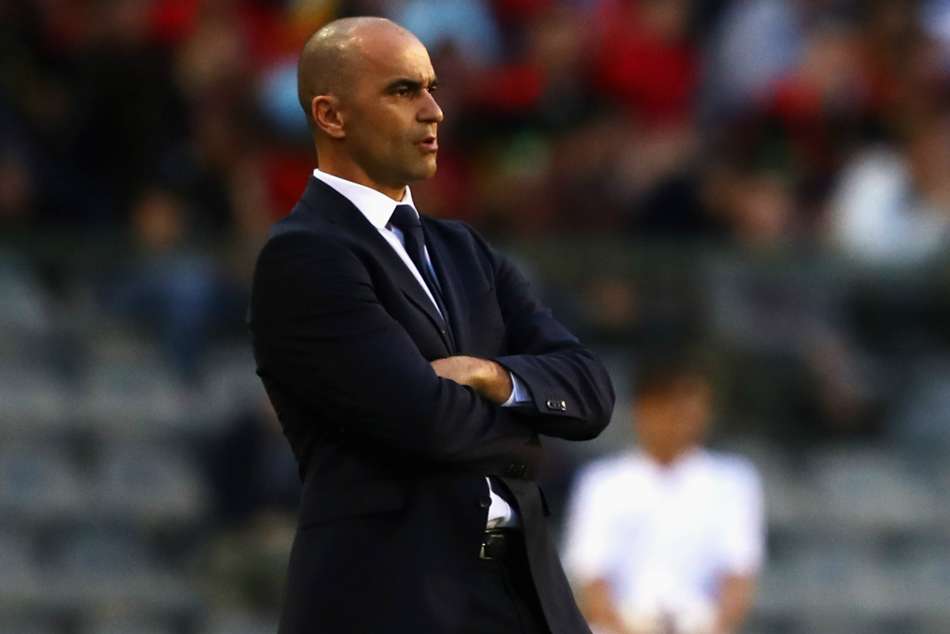
Group G: Roberto Martinez (Belgium)
A former Everton coach, Martinez was handed the Belgium job after the sacking of Marc Wilmots due to the national team's failures in the World Cup 2014 and Euro 2016. Martinez does not enjoy the full faith of his players, especially that of Belgium's main star Kevin de Bruyne, who criticised the coach's tactics last year. Martinez would, however, like to show who is boss and finally prove that Belgium are one of the best sides in the world.
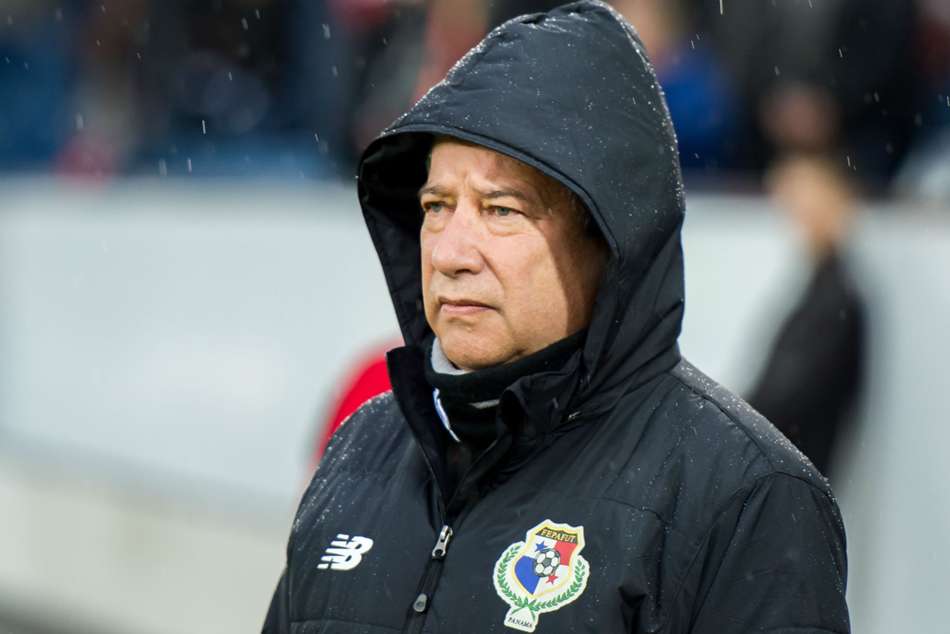
Hernan Dario Gomez (Panama)
Back in 2011, Dario Gomez left the Colombia head coach unceremoniously after punching a woman outside a bar. Seven years on, Dario Gomez's Panama are the same - they play dirty and will do anything for a victory. There's no hate for Dario Gomez this time around as he's a revered figure in Panama for guiding the country to its first-ever FIFA World Cup. His biggest challenge is to equip his team to handle the fast-paced attacks of Belgium and England in the group.
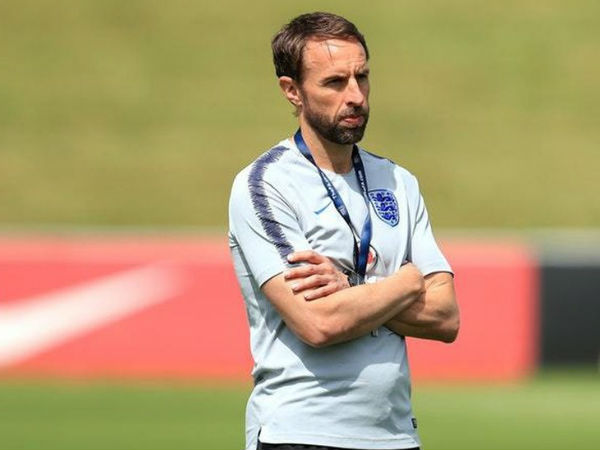
Gareth Southgate (England)
The job was forced upon the former Middlesbrough defender after former England coach Sam Allardyce resigned following a Telegraph sting operation that had him talk about ways of getting around transfer rules. Southgate has managed to turn around England's fortunes - they confirmed their slot in Russia unbeaten in the World Cup qualifiers. He has chucked the old and brought in fresh faces into the squad and likes to take an aggressive approach into the games. Before being appointed the caretaker and then the permanent coach, Southgate was with the England Under-21 side.
|
Nabil Maaloul (Tunisia)
Maaloul is a former Tunisia international with 74 caps for country and experience of playing in the 1998 Seoul Olympics. Having managed Kuwait as well apart from clubs in Qatar, Maaloul is familiar with the football culture in North Africa and Middle East. He had recently asked his goalkeeper Mouez Hassan to feign injuries during Tunisia's friendlies against Portugal and Turkey so that his players could break their Ramadaan fast. Maaloul, however, has to ensure his players regain their physical toughness in time for their first match against England on June 18.

Group H: Adam Nawalka (Poland)
Nawalka has spent time with the national team of Poland for the last five years and led them to the quarterfinals of the Euro 2016. He likes his team to keep possession of the ball and slowly build up the tempo to attack from the wings. When dispossessed, he encourages his players to press high and regain the ball quickly to make a transition. With a lot of focus on the attack, which also involves the full-backs, his defensive tactics, however, are worrying.

Akira Nishino (Japan)
Nishino was appointed as the coach only in April after the sacking of Vahid Halilhodzic and the former Japan international has not had much success in making his players adapt to his philosophy. Nishino has won the AFC Champions League as the Gamba Osaka coach and has reinstated Keisuke Honda and Shinji Kagawa into the national side.

Jose Pekerman (Colombia)
Pekerman was in-charge of Colombia even during the 2014 World Cup and the Argentina-born Colombian citizenship holder will hope that his team can improve upon their quarterfinal finish now that Radamel Falcao, injured back then, is fully fit and ready to go. Pekerman prefers his players to have a free mindset before going into any game. More than thrusting a system upon his players, he has brought a winning mentality with a simple approach to the game.

Aliou Cisse (Senegal)
Sixteen years ago, Cisse was the leader of the pack that stunned France in the 2002 World Cup and reached the quarterfinals. Even now, Cisse has roped in former teammates Tony Sylva and Omar Daf as assistant coaches for Senegal. And Cisse likes to make the best use of the talent his players have - pace and technical know-how. His formation and style of play revolves around pressing high and hitting swiftly on the counter.


 Click it and Unblock the Notifications
Click it and Unblock the Notifications













